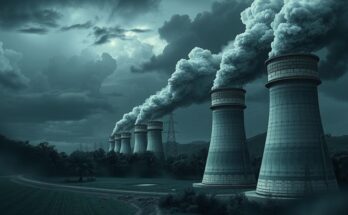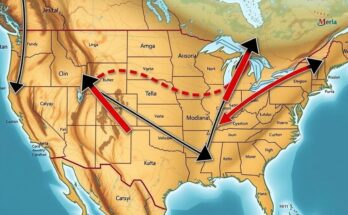The legacy of the Vietnam War resonates deeply today, with ongoing conflicts influencing modern geopolitics and the rise of fascism. Poets, such as Kim Stafford, emphasize the importance of artistic expression as a form of resistance against war. This month, as we reflect on past tragedies, poetry serves as both a solace and a weapon for peace.
Flying into Vietnam three decades ago triggered memories of a time when my family received the harrowing news of my father’s shooting by the Viet Cong in 1969. Back then, I was a 13-year-old opposing the war in Indochina, clashing with schoolmates over my beliefs. Even before I heard the grim announcement about my father’s severe injury while carrying cryptographic gear, I had a gnawing feeling that the United States was fundamentally wrong in involving itself in Vietnam—a sentiment rooted in the conflicting myths of war and impermanence.
As I sat on the bus weaving through lush rice paddies, women in traditional conical hats working away, I felt an uncanny sense of entering a different realm. Water buffaloes gazed at us, and scattered ducks darted away—a vivid portrayal of Vietnam enveloping me. The air carried an almost palpable taste of explosives, an eerie reminder of the country’s tumultuous past.
Reflecting on the 50th anniversary of the Fall of Saigon in 1975, I find myself pondering the current state of the world. Today, hawkish agendas persist with factions from the Trump administration and Democrats advocating for conflict, seemingly eager for war on multiple fronts. The intentional massacre at My Lai leaves a haunting legacy—what is occurring now in Palestine mirrors that heedless brutality, amplified through the lens of modern technology and horrific transparency.
There exists a distorted reality where both major parties appear hungry for confrontation with nations such as China, Russia, Iran, and even, ironically, Canada. This fervor starkly illustrates the remnants of the Monroe Doctrine, but exaggerated to absurd levels, evidenced by thoughtless suggestions of military action and intervention.
Interestingly, April coincides with National Poetry Month. In such precarious times, where the specter of nuclear conflict looms and technology can be harnessed for destruction, poetic expression becomes essential. It serves as a weapon against the wave of fascism we face today, catalyzed by figures like Elon Musk, who boast about the ceaseless machinery leading our society toward despair.
In a recent radio interview on April 9, I spoke with former Oregon Poet Laureate Kim Stafford about the intertwining of literature and conflict. He shared a moving poem, “Gaza, the Sound of Rain,” which illustrates the stark contrast between beauty and devastation, summarizing the poignant reality of those affected by such dire circumstances.
My own journey to Vietnam was initially as a journalist and coordinator for biodiversity research. The months spent exploring bat caves and dense forests starkly contrasted with the haunting statistics of the Vietnam War: 2 million civilians lost in the North, another 2 million in the South, and U.S. military casualties reaching over a million. The environmental impact was equally devastating, as American military operations destroyed extensive rainforests, leaving lasting scars on the landscape and its people.
In my thoughts, I am reminded of the power of poetry, like Yusef Komunyakaa’s “Camouflaging the Chimera,” which encapsulates the tension of war and survival. Komunyakaa describes a world torn apart, underscoring how nature and humanity’s struggles are interwoven. Legendary minds like Kim Stafford, who has haunted America’s literary scene for nearly 50 years, recognize the need for artistic resistance.
For Stafford, the solemn reflection on grief catalyzes creative expression and resilience, urging readers to persist in the face of despair. His wisdom envelops all age groups—young students venturing along our coastlines and older generations yearning for peace. Ties to the historic values of Thomas Jefferson resonate with the belief that the right to challenge oppression is inherent in every citizen.
Indeed, poetry serves as a vital instrument against fascism and the inevitability of war. Verses crafted amid collective sorrow may invigorate our desire for peace, offering solace in the darkest of times.
The reflection on Vietnam underscores a deep-rooted concern regarding the cyclical nature of war and conflict, extending to contemporary issues in Gaza and the ever-present threats posed by global powers. Artistic expression through poetry emerges as a vital respite amid turmoil, promoting resilience against authoritarianism and violence. Kim Stafford’s teachings and the voices of poets highlight the timeless necessity of creativity as an antidote to despair and a tool for social justice.
Original Source: www.thenewsguard.com




